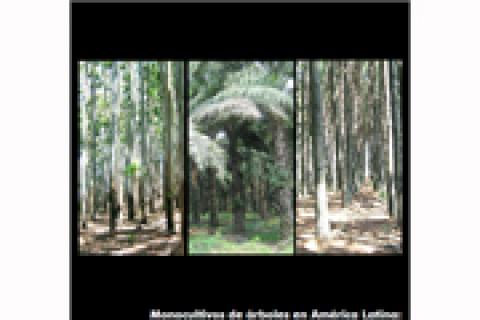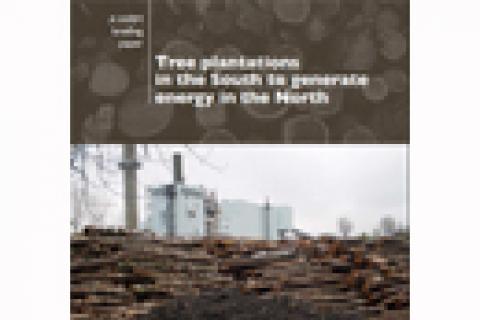Only available in Spanish
By the WRM and RECOMA
Download as pdf here
Publications
This new publication looks at the concept of ‘Payment for Environmental Services’ in its current cloths; examines some of the claims made by those who argue that putting a price on Nature is the only way to save Nature.
Study conducted by the Centro de Memória das Lutas e Movimentos Sociais da Amazônia.
by Jutta Kill, World Rainforest Movement.
Document published in "Leyes, políticas y economía verde al servicio del despojo de los pueblos" (Laws, policies and green economy at the expense of communities dispossession) special compendium of the "Biodiversidad sustento y culturas" (Biodiversity livelihoods and cultures) magazine carried out jointly by Alianza Biodiversidad, World Rainforest Movement (WRM) and Friends of the Earth Latin America and the Caribbean (ATALC) in December 2013.
Also available in Portuguese.
This is the first documented case of a land-grab in Brazil for biomass destined for power stations in the UK. The authors of the Brazilian case study are Ivonete Gonçalves de Souza (CEPEDES) and Winfridus Overbeek (World Rainforest Movement).
This is the first documented case of a land-grab in Brazil for biomass destined for power stations in the UK. The authors of the Brazilian case study are Ivonete Gonçalves de Souza (CEPEDES) and Winfridus Overbeek (World Rainforest Movement).
For many years WRM has been denouncing the FSC certification of monoculture tree plantations. The scale of these monocultures is one of several reasons for such opposition. Large-scale tree plantations occupy vast areas of land leading to displacement of communities, they consume huge amounts of water and soil nutrients and require enormous amounts of agrochemicals. These characteristics make them intrinsically unsustainable and therefore they can’t be certified as ‘sustainable’.
Governments are opening the doors to corporations for planting vast areas of land with oil palm plantations. This trend is not only happening in West and Central African countries, but is even expanding to parts of Eastern Africa. Large scale oil palm plantations are already causing serious environmental and social impacts in some countries, resulting in loss of community rights over their territories.
Apparently out of concern over climate change and the urgent need to reduce carbon dioxide emissions produced by the burning of fossil fuels, the governments of the North – particularly those of the member states of the European Union, but also those of the United States and Canada – are increasingly promoting the use of a certain type of raw material, considered “renewable”, for large-scale energy generation: wood.
Only available in French
By Franck Ndijimbi.
The main goal of this booklet is to inform communities about the serious problems that a REDD project can cause for the people involved.










